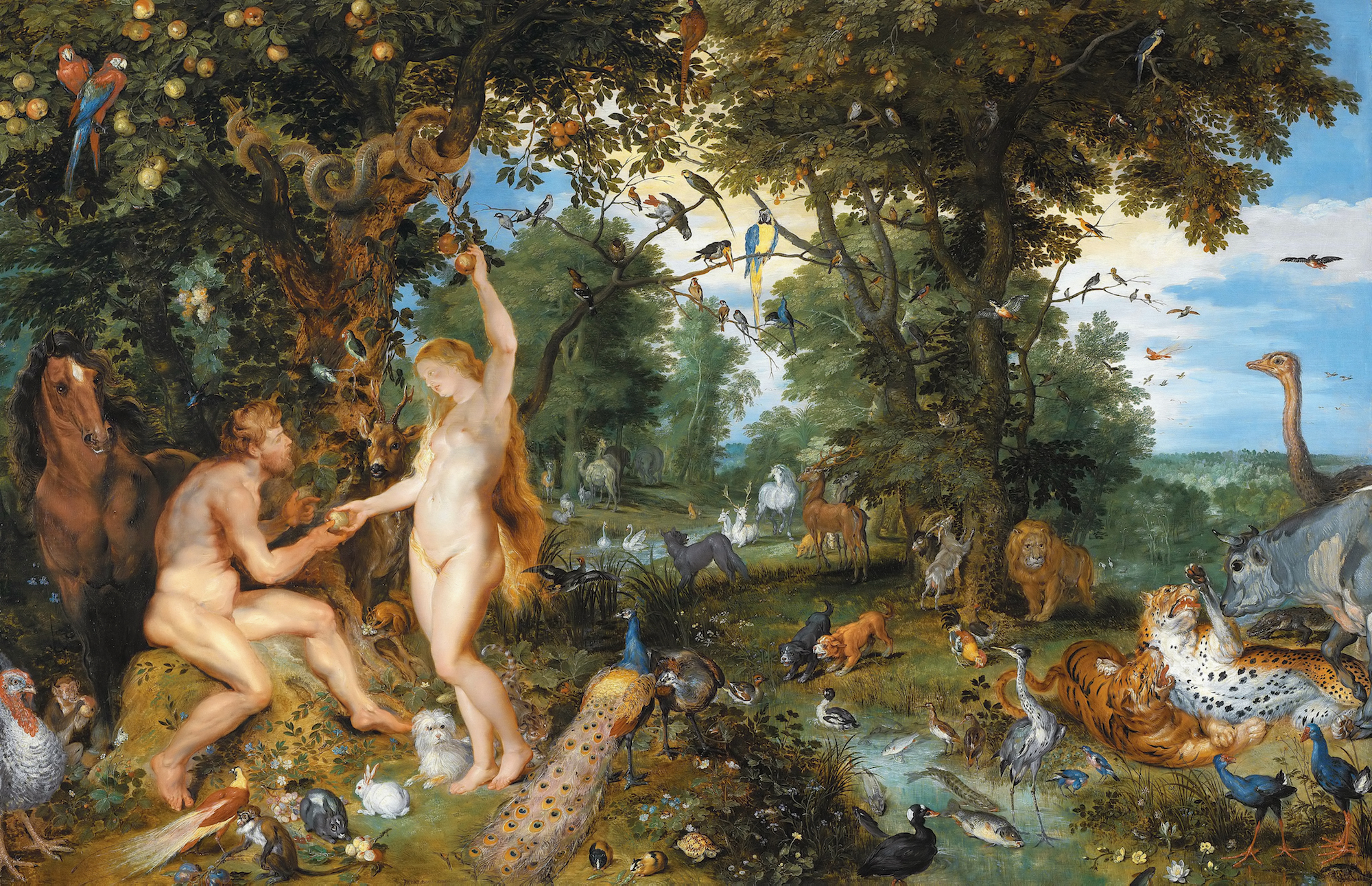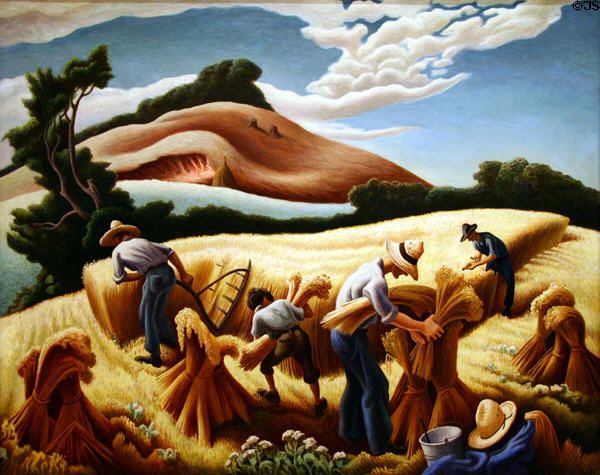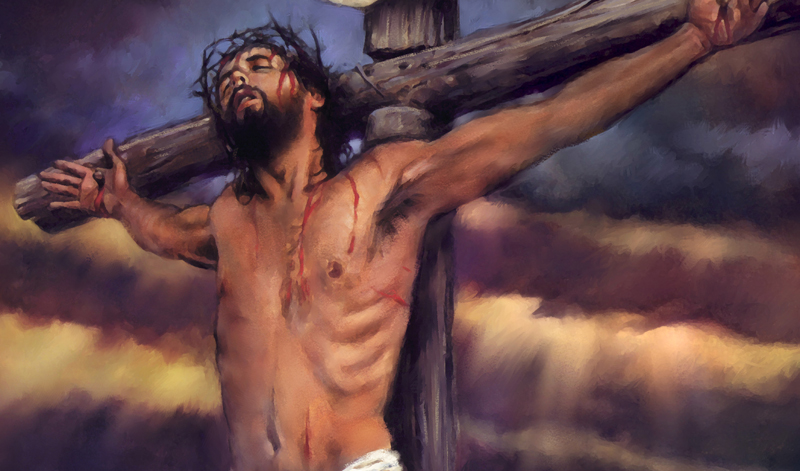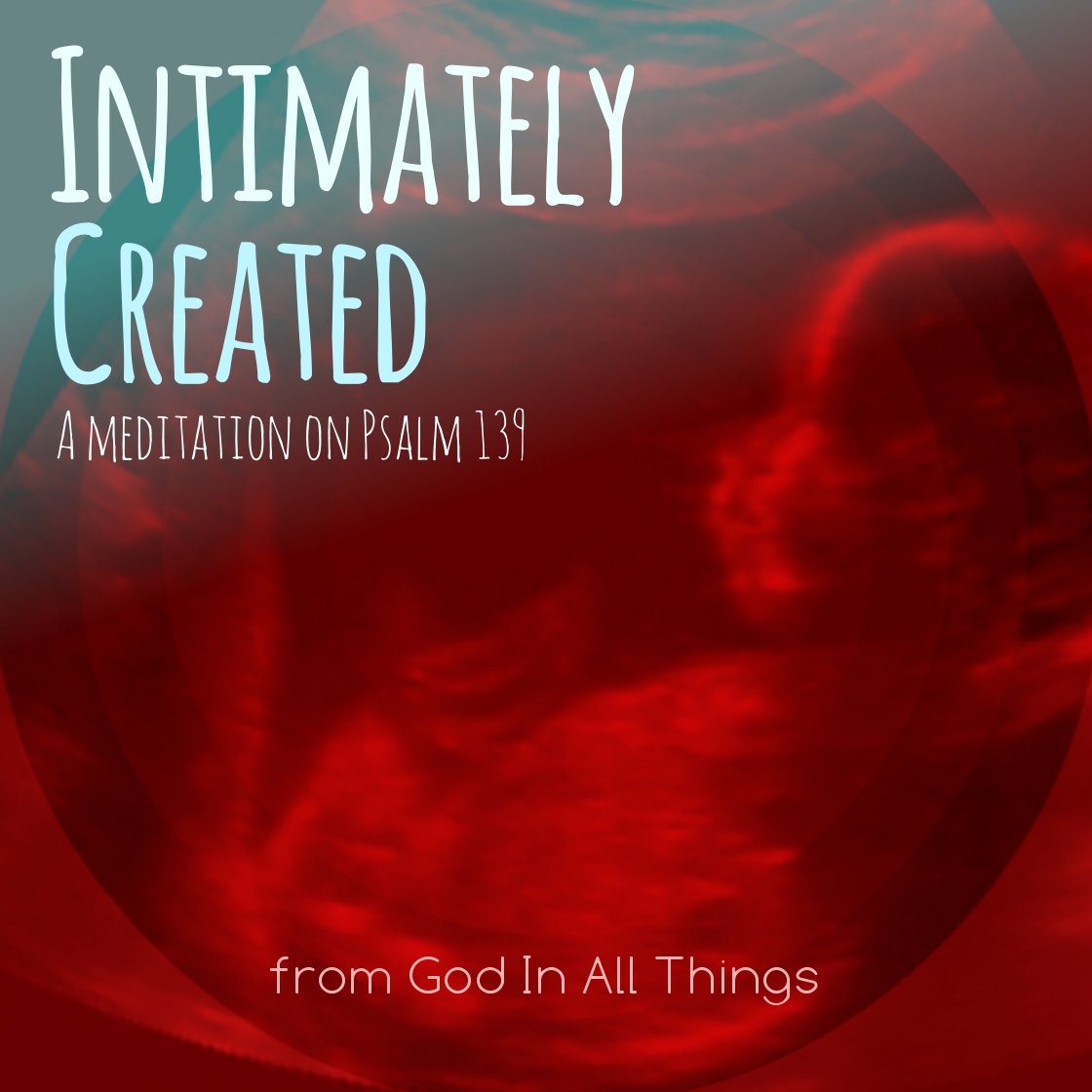
God’s gift to us of free will breaks open for humanity the world of discernment. Discernment existed from the very beginning when Adam and Eve had the free choice to eat from the Tree of Knowledge or not to eat from it. The gift of free will is so precious a gift, that God continues giving it to humanity even after Adam and Eve suffer the consequences of their actions. A lack of free will for humans may put more power in the hands of God to “perfect” the world, but we would essentially be robots; we wouldn’t be participants in God’s creation. This is essentially what discernment is: participation in what Ignatius might call, “God’s project for the world.”
What’s even more amazing about God’s invitation for us to participate in this project is that by virtue of our baptism we become kings or rulers, in a sense. We share in God’s—and Christ’s—ruling. What this means more specifically is important. The Bible Project’s Tim Mackie and Jonathan Collins take us back to the beginning, when humanity was first created. “God created humankind in his image,” Genesis says (v. 28). What this means is not that we necessarily share all of God’s qualities or characteristics, but that we are images of God’s kingship, just like the ancients created images or statues to represent their kings’ presence and authority. This means we represent God’s presence and authority.
God tells humanity to be fruitful and multiply, to subdue the earth, and to have dominion over the animals. The word “subdue” has been twisted to justify pillaging the earth’s resources with abandon. Mackie says the intent is “to impose our will” on the earth, just like a king or ruler imposes his or her will. But it’s not meant to sound authoritarian, rather it’s authoritative, based on discernment and contribution to God’s creative project. The creation narrative uses the metaphor of gardening, or agriculture. As one would “subdue” a plot of land, planting seeds, watering, cultivating it, caring for it, and harvesting its fruit, one is called to subdue the world—planting seeds through our witness, using and cultivating our gifts, working for the common good, and sharing its fruit with others. And as God has desires for the cultivation and harvesting of the earth, metaphorically, we do as well.
It’s extraordinary empowerment which God gives us to share in this “ruling”. As Ignatius says, our deepest desires are also the desires God shares. We participate in the creative “subduing” of the world by discerning those desires and executing those desires in the form of action. It’s what the whole process of contemplating and acting is about.
This has been our call from the very beginning. But the story of Adam and Eve, and many of those who follow in salvation history, make it clear that we humans are not good at taking the call to subdue the earth well. The imposition of will manifests more as power than carefully discerned action working for the building of God’s kingdom. Even structures within our own church can become more about power than moving God’s project forward. It is our responsibility as God’s rulers—as “images of God”—to discover our role in executing this project.  We discover that by discovering our gifts and desires, and by making prayerful choices in accord with those gifts and desires, building relationships, choosing how we are to be educated, deciding on what kind of job to do, discerning whom to marry, which religious order to join, how we spend our money… The countless decisions we’re faced with are ways we can participate in our role of subduing the earth, ways we cultivate and build.
We discover that by discovering our gifts and desires, and by making prayerful choices in accord with those gifts and desires, building relationships, choosing how we are to be educated, deciding on what kind of job to do, discerning whom to marry, which religious order to join, how we spend our money… The countless decisions we’re faced with are ways we can participate in our role of subduing the earth, ways we cultivate and build.
A beautiful meditation on this Thomas Hart Benton painting “Cradling Wheat” reminds us that “In our work we are fulfilled.” Work, cultivating, and harvesting are part of the rhythm of daily life. In truth, we’re not called to do anything extraordinary. It’s in the ordinary that God works. Our ordinary lives, moment by moment, decision by decision, are the way we fulfil the call to subdue the earth, to impose our will—our desires, our hopes, our dreams—on a little patch of the soil of God’s grand and magnificent project of Creation.
Related posts:









Trying to figure out how to subdue my patch of earth as a retired person. It has been a year now and I still not sure of my direction. After 50 + years of work I have just sat in awe as time spread out before me. I’ve explored a ministry I thought I would be involved in only to have my inner voice tell me no. It (I) was right. So I still sit with so much time. Not yet ready to give up the luxury of that. So I am waiting for the devine flick in the head. This was good to read because I know I can stick with the little things right now until inspiration and discernment light my fire. Thanks as always.
Thanks for this thoughtful post! I love the Benton painting.
You have written a wonderful article. It speaks well to the general interpretation of the scriptures.
I have long believed that we need to revisit our general interpretation of what happened in the garden of Eden. There are many details and nuances in the first chapters of Genesis which seem to be lost in the general interpretation.
In your article you said… “As one would “subdue” a plot of land, planting seeds, watering, cultivating it, caring for it, and harvesting its fruit, one is called to subdue the world”
It seems to me that the pre-fall garden needed no subduing… and, in fact, could not be subdued. It took care of itself. Nothing died, no weeds or watering or seed planting or cultivating were needed. One would simply pluck a fruit and enjoy it.
So what was God saying? I believe that He gave two commandments… both of which were commands to “fall” when they were spiritually mature enough to do so. Only a fallen world would need, or could be replenished and subdued. Multiplying through pro-creation would only be possible after they new they were naked–after the fall. I believe that Genesis 2: 17 is a Divine Decree, not a warning or permanent prohibition. “But of the tree of the knowledge of good and evil, thou shalt not eat of it: for in the day that thou eatest thereof thou shalt surely die. “in the day thou eatest thereof” is a decree. Like a child who needs to grow up and mature before they can do adult things… Adam and Eve began innocent and naive… and utterly unprepared for leaving Father’s presence, bringing children into the world, and fully keeping the first commandment to be fruitful and multiply and replenish the earth and subdue it. In fact… there was nothing to replenish and subdue because nothing died or was corrupt yet. Father told them what was coming… BUT NOT YET. He still had lessons to prepare them with. Then, in time… “WHEN the woman SAW that the tree was GOOD”… the time had come to partake and help her husband also see that it was time. They were to stay together. Only after they chose to move into the fall and knowledge of good an evil… only after they began to perceive their nakedness… only after they had felt their first interaction with fear, self-consciousness, and maybe even and pride (represented by the FIGurative aprons)… only then did Father declare that the man had become as “one of us” to know good and evil. They have no understanding of good and evil before all that. Partaking of the fruit was… deciding to “leave Father… and cleave unto one another” and move into what Father had prepared for them, away from His presence, for their further maturing.
Why now and not before?
They needed to mature first. And… between Father and the carefully placed influence of darkness (the devils thoughts in Eve’s mind)… she matured more rapidly (as most girls/women do compared to boys/men). She and Adam already knew the tree was good and important. Father had already told them that there was going to come a… “day thou eatest thereof.” It is just like we know that growing up and getting married and having kids is important and good and right–but not yet… when we are too young and immature. WHEN the time was right the woman SAW that the time was GOOD or right to partake of the tree. She made the decision to get on with the next phase of her life… and she helped Adam SEE and make the same decision. Guaranteed, the Spirit was pressing upon them. Now things began to move forward into the next phase of their education and maturing and becoming more fully as Father is. They both made the decision to leave Father’s presence and enter into the education of the tree of knowledge of good and evil. Eden was a nursery. Not a place that was to be a permanent home.
Father knows it is time and so he is coming to talk to them. Father knows exactly how it is going to play out and the things that Adam and Eve are experiencing and feeling for the first time. He then invites them into a simple stewardship report (not a condemnation for being bad). Father than begins to give them power through Christ over the adversary… and then he begin to tell them how things and going to go now. He tells them that it is good–for their sakes. There are so many details of what Father does for them to prepare them and clarify a few things for them. Then lastly, He teaches begins to give them the beginnings of the gospel of Jesus Christ (cherubims and a flaming sword)… which, as they experience darkness and mistakes, they will need… before they can return to the tree of life. They know they are going to die. They know that Christ will be essential and will come through them eventually–they are to be “saved” in childbirth. Then when they are fully prepared to be leave Father’s presence… He does not actually fully leave them on their own. He “drives” them out. Think of it like a family road trip. Dad is driving. The kids have no clue what is happening most of the time, and may indeed be somewhat unruly and fighting with one another. But… they have the Light of Christ–the spirit of the road trip and the ultimate destination. That Light pricks them from time to time… and at very least they participate with a… “Are we there yet?” As they get older and more mature… they may begin to take interest in the map and driving and sights along the way, etc.
Taking an interest in Dad’s driving, etc.
A covenant relationship with Christ is essential to exaltation–the ultimate destination. Eden had no need of Christ–the Savior. The Father’s plan was to prepare our first parents in the Edenic nursery… and then they would transgress (Webster: Etymology. from early French transgresser “to transgress,” from Latin transgressus, past participle of transgredi “to step across or beyond,” from trans- “across, beyond” and gradi “to step”)…step beyond the nursery… and into the curriculum or the fallen, natural, see through a glass darkly world of gaining knowledge of good and evil by on-going experience. Ultimately we would see evil for what it is… and choose the good. Good and evil are reference points for each other. They must both exist or there is no sense or sensibility. The plan is for us all to enter a covenant relationship with Christ… and He would then, as Master, fully apprentice us in becoming “perfect, even as… Father in heaven is perfect.” Christ would pay the “justice” price of the learning curve and redeem us from the fall and mistakes and sins we would all live and live through.
In the process… we would live on a challenging fallen earth… and through a challenging fallen life… and truly learn to IN Christ… “Be fruitful and multiply and replenish the earth and subdue it.”
There is a bunch more to all this… but, as I said before, I believe that the general interpretation of what happened in Eden and what “subdue” means… need to be looked at more carefully. Too much of what Genesis tells us is glossed over. The general interpretation has huge holes in it when compared to the FULL scriptural text and details.
The term ‘subdue’ seems to be a perhaps convenient one for those of us from a Western tradition. The development of the world as we populate or over-populate it has been rapacious. The essential soil has been largely replaced by a science treating it like agar to hold plants up while concentrated nutrients and noxious compounds are applied. Our stewardship extends as far as our need for food and conquest.